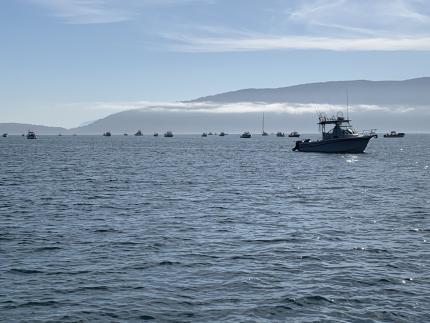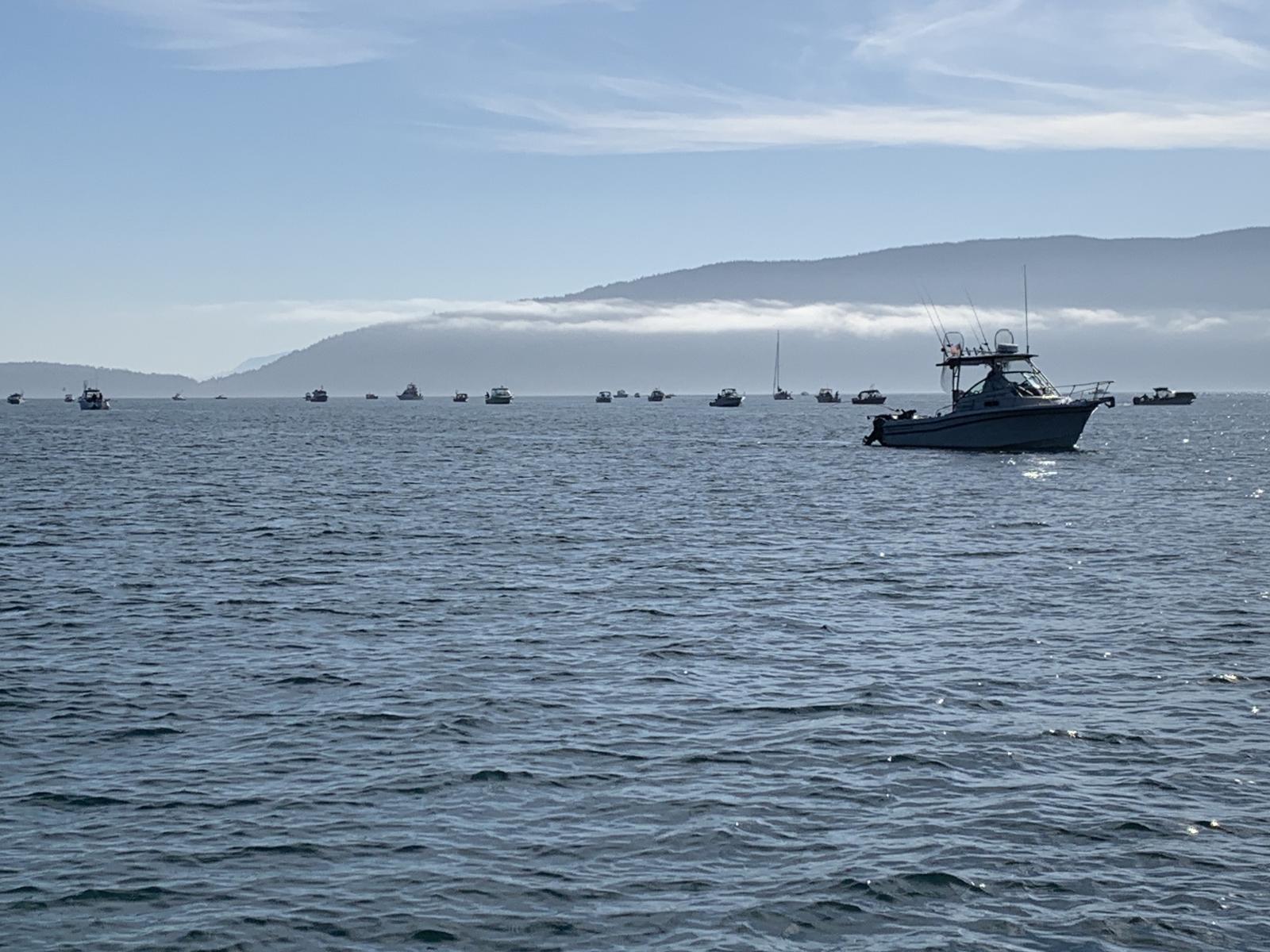Photos
Click to display full size or right-click to save to your device.
ARCHIVED NEWS RELEASE
This document is provided for archival purposes only. Archived documents
do not reflect current WDFW regulations or policy and may contain factual
inaccuracies.
News release July 19, 2023
Contact: Fish Program, 360-902-2700
Media contact: Mark Yuasa, 360-902-2262

OLYMPIA – Salmon fishing in Marine Area 7 (San Juan Islands) will reopen Friday, July 21, after Washington Department of Fish and Wildlife (WDFW) fishery managers determined enough summer Chinook remained in the recreational catch quota.
Catch estimates for Marine Area 7 indicate the fishery through July 15 has reached 76% of the hatchery Chinook harvest quota (1,664 of 2,181), 27% of unmarked Chinook encounters (1,142 of 4,258) and 30% of sublegal encounters (761 of 2,554). Based on daily catch rates thus far, this allows space for one additional day of fishing to be added to the 2023 summer Chinook season.
“We are excited to be able to offer another day of fishing opportunity for anglers to pursue ‘king salmon’ in the San Juan Islands this year,” said Kirsten Simonsen, Ph.D., WDFW’s Puget Sound recreational salmon manager. “We had a larger number of fish caught in the first three days of this fishery than last year, with an average of almost half a Chinook per angler trip.”
During the Friday, July 21 opener the salmon daily limit is two, no more than one hatchery Chinook. Chinook minimum size is 22 inches. Other salmon, no minimum size. Release wild Chinook, wild coho, and chum. The following areas will remain closed for salmon: Samish Bay, Yellow and Low Island Preserves, Southern Rosario Strait/Eastern Strait of Juan de Fuca, Bellingham Bay, and Lummi Bay.
Marine Area 7 will reopen for salmon fishing from Aug. 1 through Sept. 30. The daily limit is two salmon. No minimum size limit. Release all Chinook, chum, and wild coho from Aug. 1-31. Up to one coho may be retained and release all Chinook and chum from Sept. 1-30. A Chinook fishery opens within the Bellingham Bay Terminal Area on Aug. 16, see the 2023-24 sport fishing regulations for details.
To support conservation objectives, in areas where multiple salmon stocks overlap—including the San Juan Islands and throughout Puget Sound—state and tribal fisheries managers must abide by harvest quotas and allowable impacts that are federally approved by the National Marine Fisheries Service based on agreed-upon run forecasts prior to the fishing season.
Given this federal oversight and the challenge of accurately assessing individual salmon stocks in a mixed-stock system, WDFW cannot increase salmon harvest quotas or encounter limits while fishing seasons are underway. However, salmon managers can add or extend fishing opportunities when available salmon harvest quota and encounter limits allow, as is the case with this extension.
Puget Sound salmon seasons are a result of an annual collaborative state and tribal salmon season-setting process known as North of Falcon (NOF). The public is invited to participate in this process in late winter and spring of each year and can visit the WDFW NOF webpage for more information.
Other marine areas are currently open for salmon fishing and can be found on the WDFW website. Click here to view the Puget Sound salmon fishery guidelines and quotas.
For full fishery details and regulations, see the emergency rule change at WDFW’s website. Permanent regulations can be found in the 2023-24 Washington Sport Fishing Rules pamphlet. To be notified of in-season rule changes as they are announced sign up for email notifications at wdfw.wa.gov/about/lists.
WDFW fishery managers continue to call on salmon anglers to submit voluntary Salmon Trip Reports to help to increase the amount of data available for in-season management. These trip reports are just one tool in a suite of options fisheries managers use to collect biological and fishery data for Puget Sound salmon. Other monitoring tools include dockside sampling, test fishing, and boat surveys. Anglers can complete the voluntary Salmon Trip Report Form online or visit the WDFW website to download a paper copy.
The Washington Department of Fish and Wildlife works to preserve, protect, and perpetuate fish, wildlife and ecosystems while providing sustainable fish and wildlife recreational and commercial opportunities.
